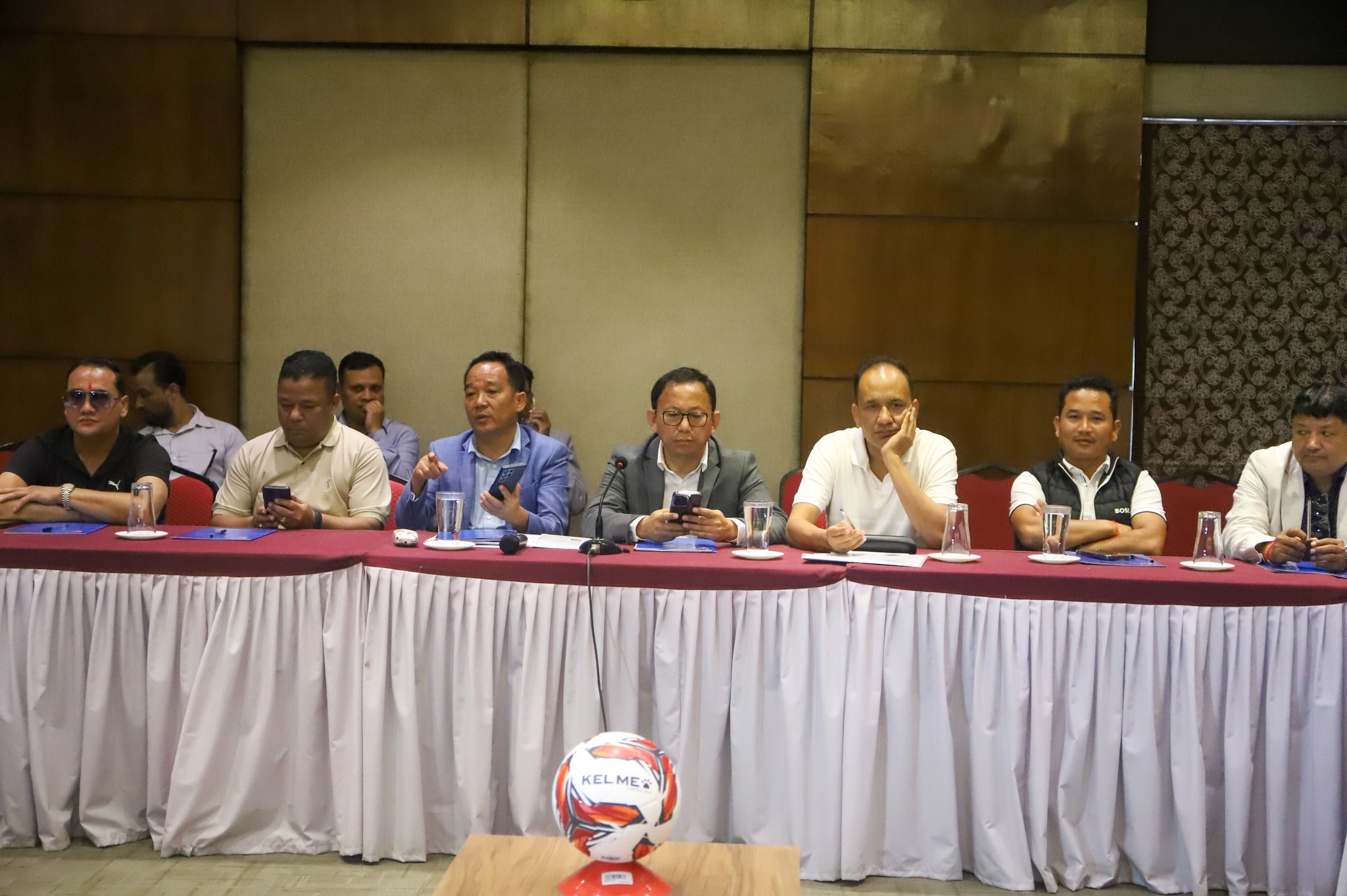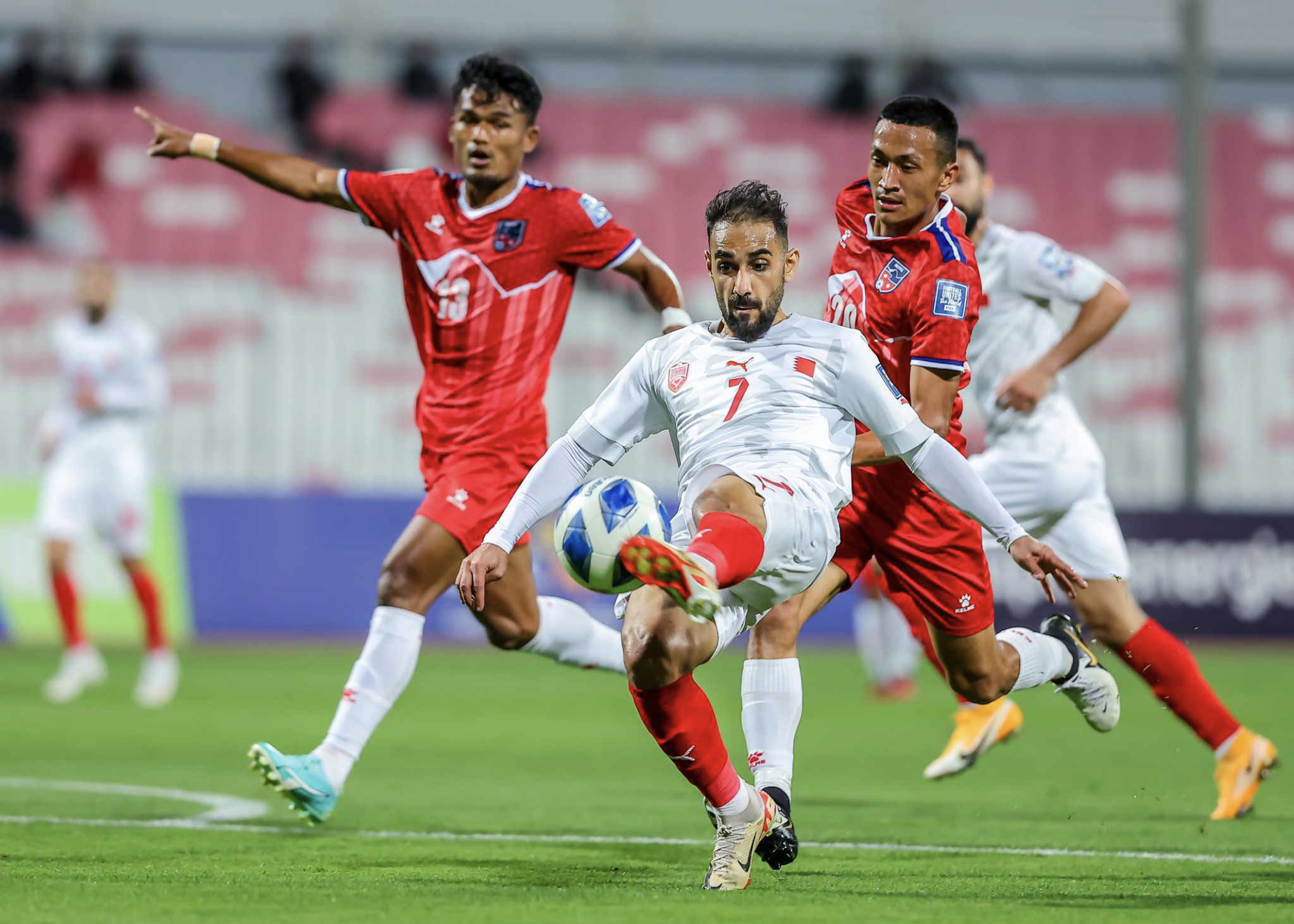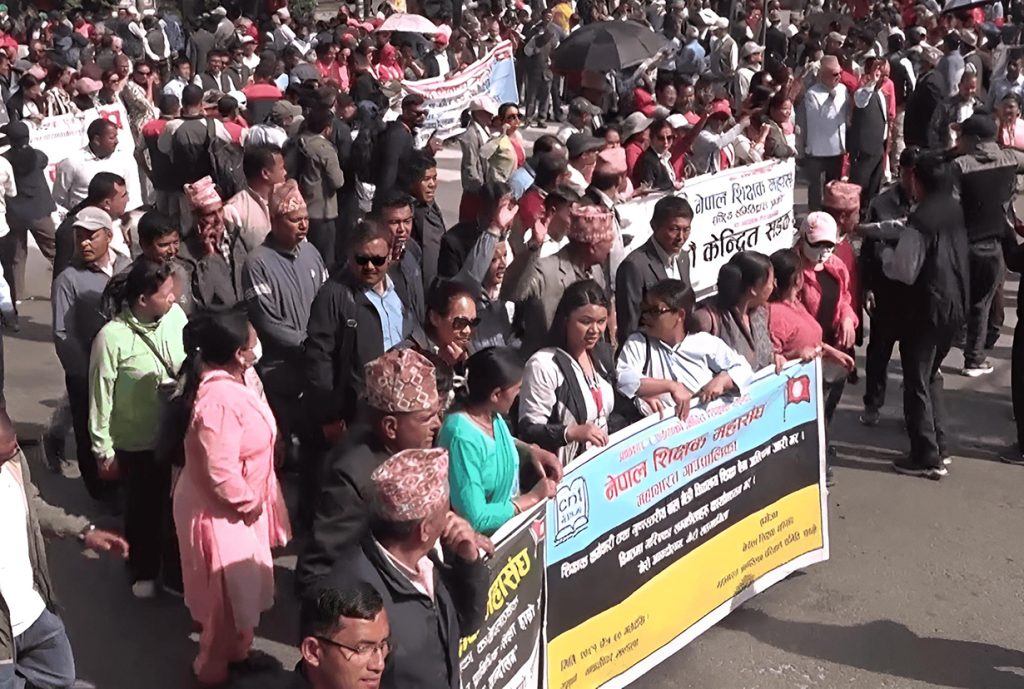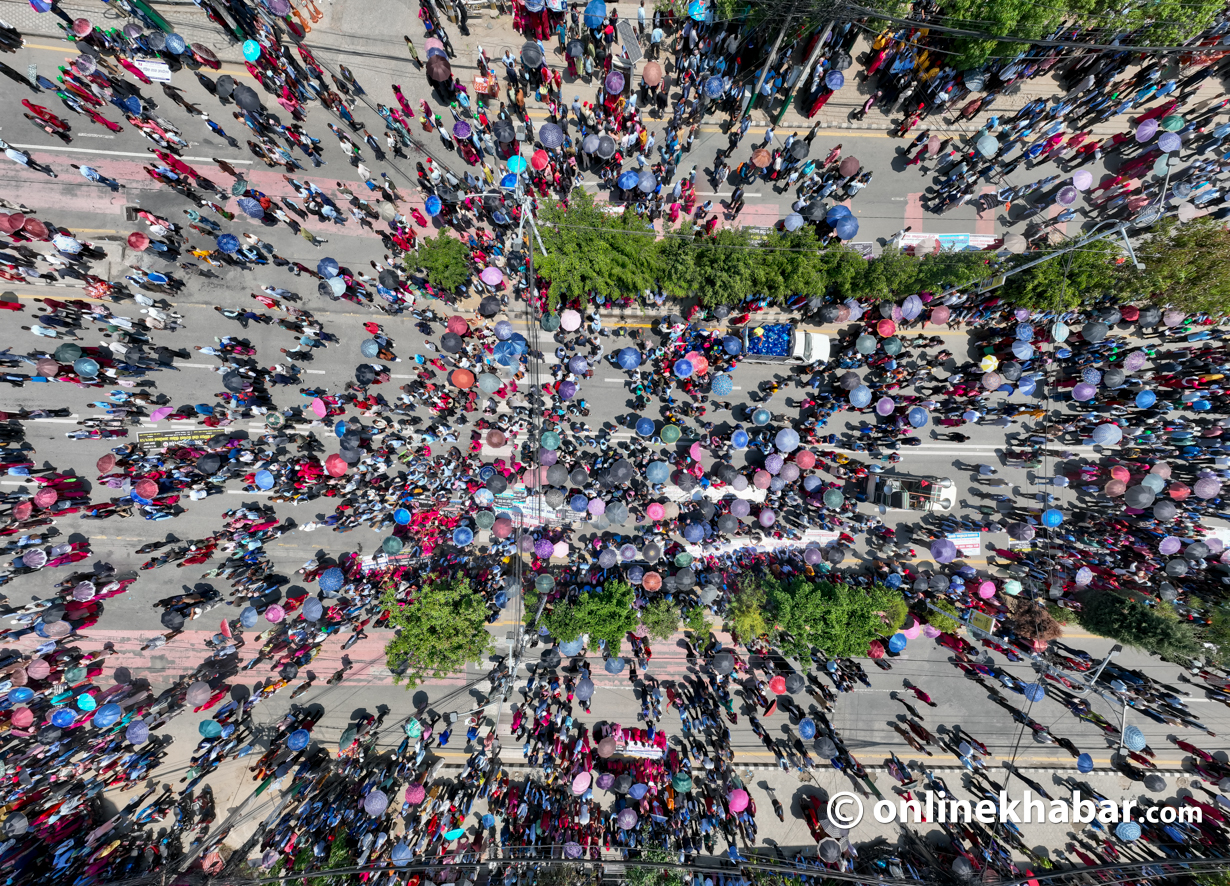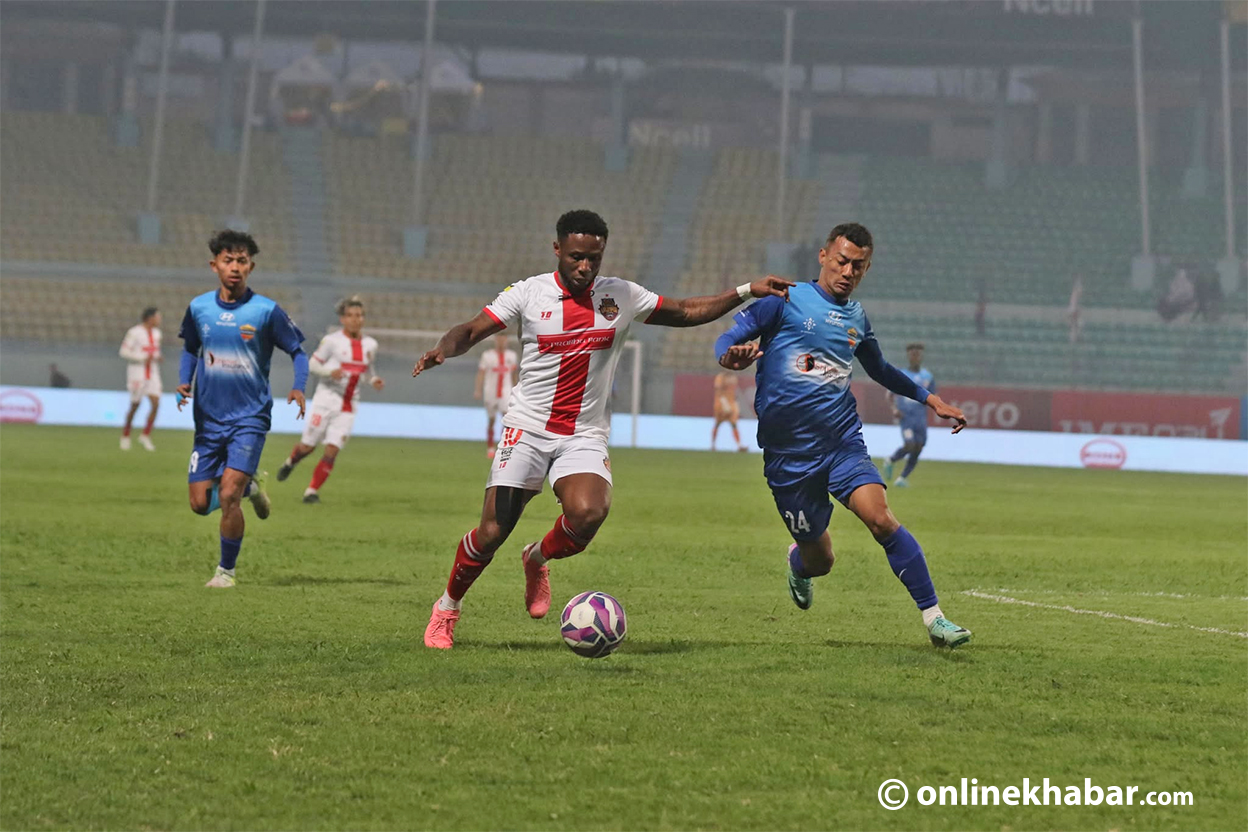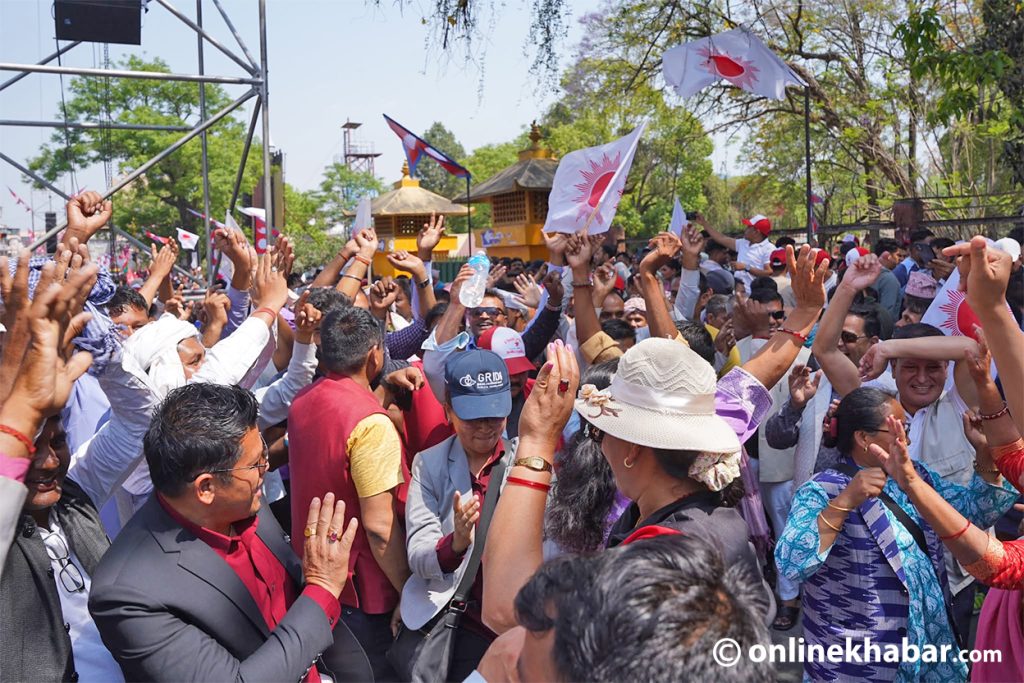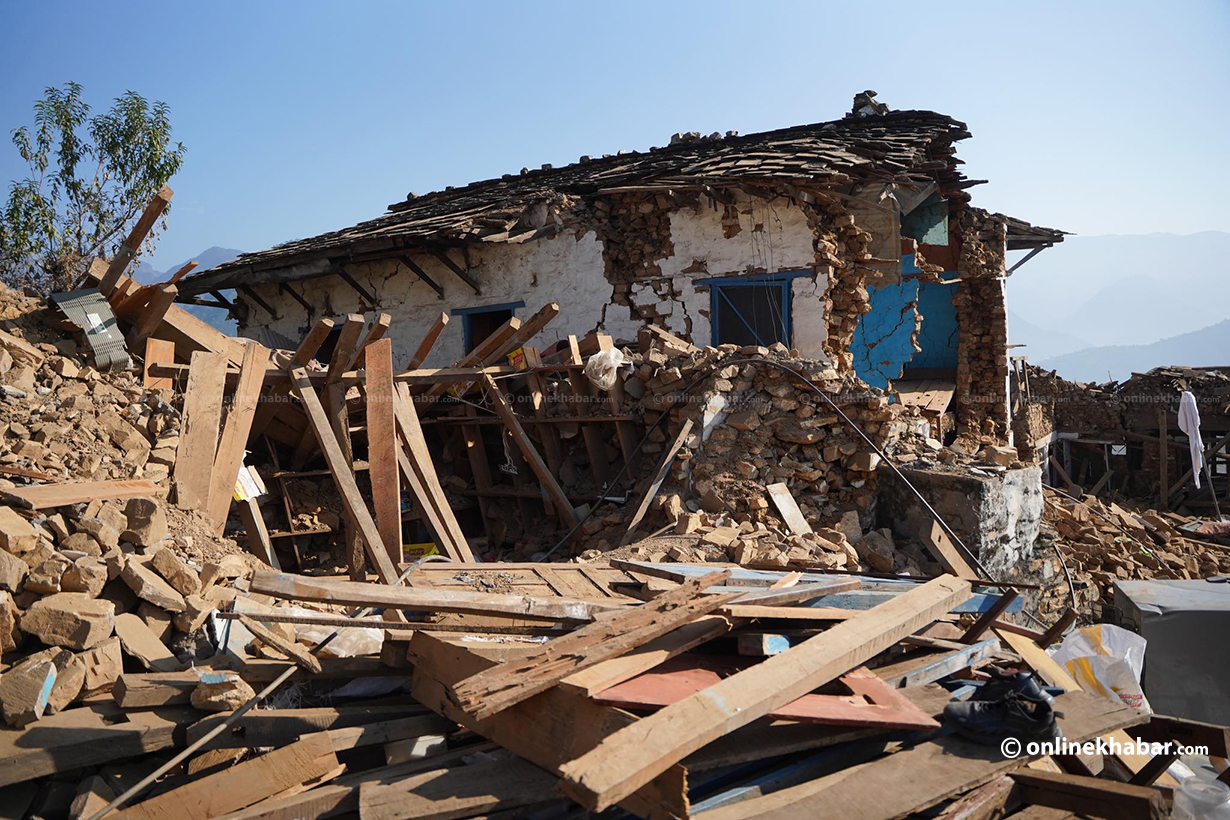
Dasharath Stadium is Nepal’s only international football stadium. The stadium, however, hosts more than just football matches. Over the past year, it has held a convocation ceremony, rugby, musical concerts and even a kidney day program.
All these events have taken a toll on the stadium. The pitch has worn down to the extent that some parts of the ground lack grass covering. Holes dot the surface, and the ball does not roll smoothly when pushed forward.
The poor pitch condition of the country’s only international stadium has led to Nepal’s home game of the 2026 FIFA World Cup Qualifiers against Bahrain to be moved from Nepal to Bahrain. A team from the Asian Football Confederation (AFC) came to Nepal for inspection and deemed the pitch to be unsatisfactory forcing Nepal to play its home game in Bahrain.
The All Nepal Football Association, along with the National Sports Council (NSC), has faced significant scrutiny for their alleged lack of awareness regarding Nepal’s match against Bahrain on March 21. They have been accused of irresponsibility in failing to adequately prepare the stadium for such an important event.
The two bodies, however, are pointing fingers at one another.

“Everyone knew Nepal was playing Bahrain on March 21. NSC was aware of this yet they kept giving permission to hold various events at the Dasharath Stadium,” said ANFA general secretary Kiran Rai.
The convocation ceremony of Tribhuvan University took place at Dasharath Stadium on December 18, 2023. Subsequently, a rugby tournament was held from February 18 onwards, followed by a Kidney Day program on March 14.
In October 2022, the Dasharath Stadium hosted a concert by the Edge Band. After the show, the ground was strewn with plastic bottles and beer bottles. Many claimed that the concert had a significant negative impact on the pitch, with some even asserting that it caused irreparable damage.
As ANFA points the blame for all this on the NSC, Tanka Lal Ghising, member secretary of the Council, said the NSC is not at fault.
“I don’t why they are blaming us. The staff who look after the stadium is employed by ANFA. They look to be transferring the blame needlessly rather than doing their job,” said Ghising.

Ghising says that the NSC only gives permission to conduct other events at the Dasharath Stadium after ANFA provides a no-objection letter.
“We have not allowed any other event apart from those recommended by ANFA,” said Ghising.
ANFA General Secretary Rai, however, says that they instructed the NSC to prepare the ground three months ago.
“We sent a letter to NSC three months ago, outlining the preparations required for the World Cup qualifiers. We provided instructions on how to prepare the field and the timeline for completion,” he says.
On March 15, following the appointment of the new minister, Biraj Bhakta Shrestha, to the Ministry of Youth and Sports, he issued instructions to establish policy arrangements for the maintenance of the ground. However, the NSC had already taken proactive steps by forming an infrastructure management and operation committee on March 6, with Anjan Dhamala leading the efforts to ensure proper management of the ground.

While Nepal does have state-level stadiums for domestic and national competitions, Dasharath Stadium remains the only choice for international games. However, it is concerning that international games are halted due to the stadium being used for purposes other than football, especially when there are limited football activities in the country.
Ramesh Silwal, a former member secretary of the Council says it was a disgrace that Nepal could not play at home due to this negligence.
“The team will suffer as will the fans,” he said.

Pokhara Stadium could have served as an alternative to Dasharath Stadium. However, it lacks essential infrastructure such as floodlights for night games, dressing rooms, and proper toilets—requirements for an international stadium.
“We need a dedicated stadium for international games. Hopefully, this does not repeat,” said Rai.
The NSC has said it will take over the entire handling of the ground, including its maintenance.
All photos: Chandra Bahadur Ale







